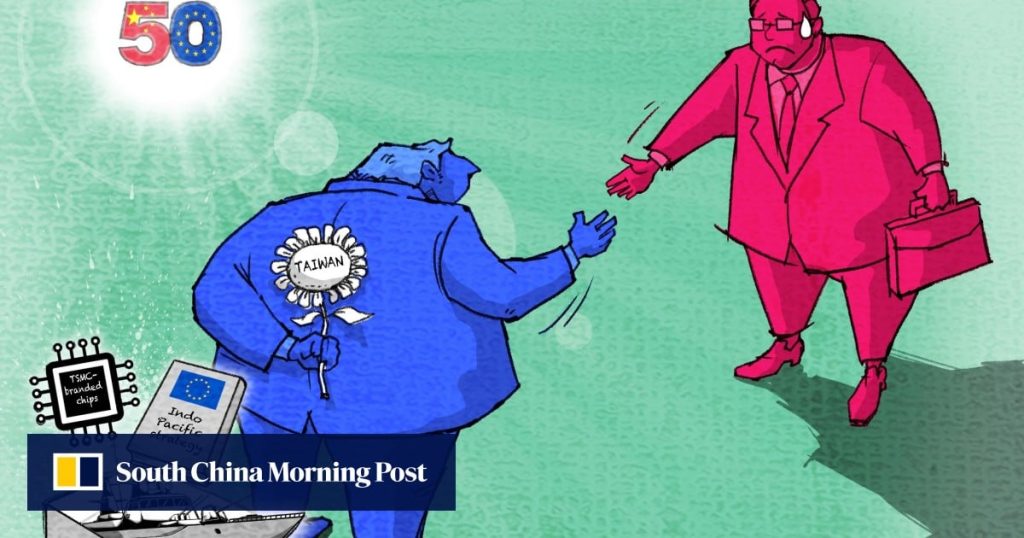This year marks half a century of formal diplomatic relations between China and the European Union as well as the 25th anniversary of the founding of the European Union Chamber of Commerce in China. In this, the fourth part of the series, Shi Jiangtao looks at how the issue of Taiwan is overshadowing the relationship.
After establishing diplomatic relations with Beijing in 1975, all member states of the European Economic Community – the precursor to the EU – formally recognised Beijing as the sole legitimate government of China, a stance now mirrored by most of the world.
This commitment, routinely reaffirmed in subsequent high-level exchanges, has long been seen by Beijing as a major diplomatic red line.
It regards the issue as both a gauge of the EU’s adherence to the one-China policy and a litmus test of Brussels’ much-touted drive for strategic autonomy amid intensifying US-China rivalry.
In recent years, however, several European countries have expanded ties with Taipei, seeking to actively reinterpret their one-China policy – distinguishing it from Beijing’s one-China principle, even as Brussels has stepped up efforts to “de-risk” its relationship with mainland China.


